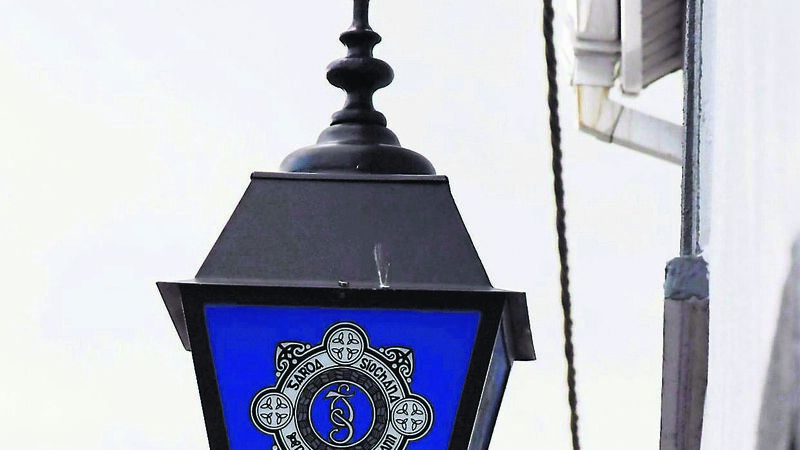Undervalued and abused: Why I pity our poor public servants

Guards, nurses, teachers and other public sector workers are undervalued and face regular abuse, says Ailin Quinlan
We run to them when we become the victims of crime, experience ill-health, when our houses go on fire; we depend on them to educate our children.
And yet our gardaí, nurses, fire-fighters, teachers and other members of the public service are subject to the most vitriolic psychological, emotional and physical abuse and bullying from the self-same people they help.
During the Celtic Tiger boom, it might be recalled, people would tell you they’d cut their own throats rather than go into the public service because pay and conditions in the private sector were so much better; jobs in the IT sector, engineering and accountancy, for example, yielded eye-watering remittances.
Then came the big recession. Suddenly the Irish public and a few highly-paid financial experts were clamouring that these self-same public sector workers earned too much and their working conditions were too comfortable.
So, given this supposedly high pay and these utterly super-duper working conditions which have attracted so much public envy, isn’t it strange that so many in the public sector of them are resigning?
Members of the defence forces are leaving in droves because of poor pay and conditions. Highly-trained Irish nurses and doctors are high-tailing it to better pay and conditions abroad as fast as their hard-working legs can carry them.
Nurses recently lashed out at the horrendous abuse they face in our hospitals on a daily basis from patients and the relatives of patients.
Fire-fighters are routinely bombarded with missiles and verbal abuse in some communities when they arrive to put out a blaze and save lives.
Teachers and Special Needs Assistants have reported physical and verbal attacks and growing disrespect, bullying, disobedience and a sense of entitlement from students.
The incidence of rude, entitled parents arriving into schools and barging into classrooms to berate teachers in front of their students is not uncommon.
Now it emerges that, for the first time since the establishment of the force, large numbers of gardaí are resigning – and resigning en masse according to the Garda Representative Organisation, which describes this as a “new and unusual” trend in the force.
Laura Young is a case in kind. She recently spoke to RTÉ about leaving her 14-year-career as a garda because of a toxic cocktail of factors including public perception towards gardaí and the toll the job took on her mental health.
The “lack of acknowledgement” of personnel and an increased focus on administration were among the factors she mentioned, along with the way cumbersome policies and procedures, a lack of job satisfaction, camaraderie, fun, good workplace relationships and poor morale had brought her to the point where she realised that she had to leave.
A representative of the Garda Representative Association commented that Young’s story was replicated in the accounts of every member of exiting or resigned personnel the organisation had interviewed in recent months.
Young spoke about times when she would literally sit at home “trying to recover from the working days”. She was assaulted once during her time as a garda but says that was unusual – “usually it’s a lot more than that”.
It was a terrible interview to listen to, but it was not surprising. We’ve heard about garda cars being rammed, and gardaí being physically and verbally attacked. We’ve heard of gardaí sleeping in their cars between shifts because the distance back to the accommodation they can afford to rent or purchase, is so long.
A senior garda officer told me recently that he has long disengaged from social media because of the number of personal online attacks on himself and other gardaí in the community.
Things have become so bad that gardaí exiting the force are equating it to leaving a “toxic or abusive relationship”, according to the Garda Representative Association (GRA) officer conducting exit interviews with members resigning early.
She said about 109 gardaí resigned last year, which was the most ever in a 12-month period, and that they expect that if the trend continues, up to 150 could resign from the force this year.
Every single person that this officer has interviewed, she says, has been fighting mental health issues which had brought them to the point that they couldn’t cope with another single day doing the job they’re doing. These exiting gardaí report being overworked and under-resourced.
The GRA official spoke about how the growing bureaucracy required as part of the job is also a major drawback to serving members. For example, she explained, if a traffic accident happens even 20ft outside a garda station and somebody runs in and reports it, the gardaí on duty can’t deal with the incident until that member of the public rings 999, the call is recorded and the command control system officially approves them to deal with the incident.
So tell me this: Nobody can claim that every public servant is a saint. There are bad apples in every part of the workplace, public and private, and in the voluntary sector too.
But it can and should be said that very many public servants are decent, hard-working, conscientious people who do their level best to do a good day’s work.
Meanwhile, the government expects public servants to deal with an increasingly aggressive, entitled, rude and often abusive public while not paying them properly for the work they do. While not providing them with decent working conditions. While failing to provide sufficient resources and staffing levels for employees to do their jobs properly without becoming burned out.
This, by the way, is the self-same government that for years has been throwing open its purse-strings to house, feed, educate and provide healthcare to refugees and asylum-seekers from all over the world
Something has to give. But it’s giving already, isn’t it, because they’re leaving. Tell me, what happens next for the law and order in this country? For the healthcare system, the education sector and all the other services that public servants are responsible for? Think of that the next time you’re tempted to spit at a garda or abuse a teacher or nurse because you’re having a bad hair day.







 App?
App?




